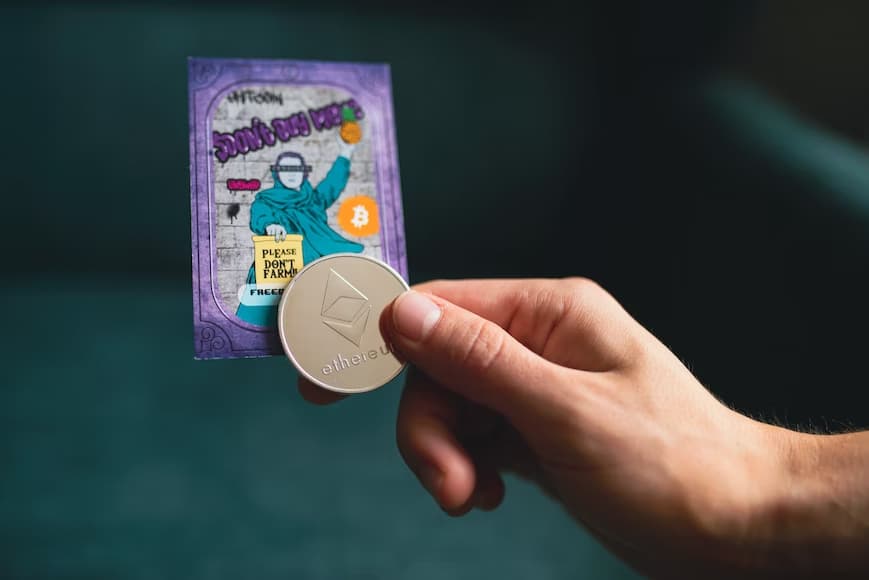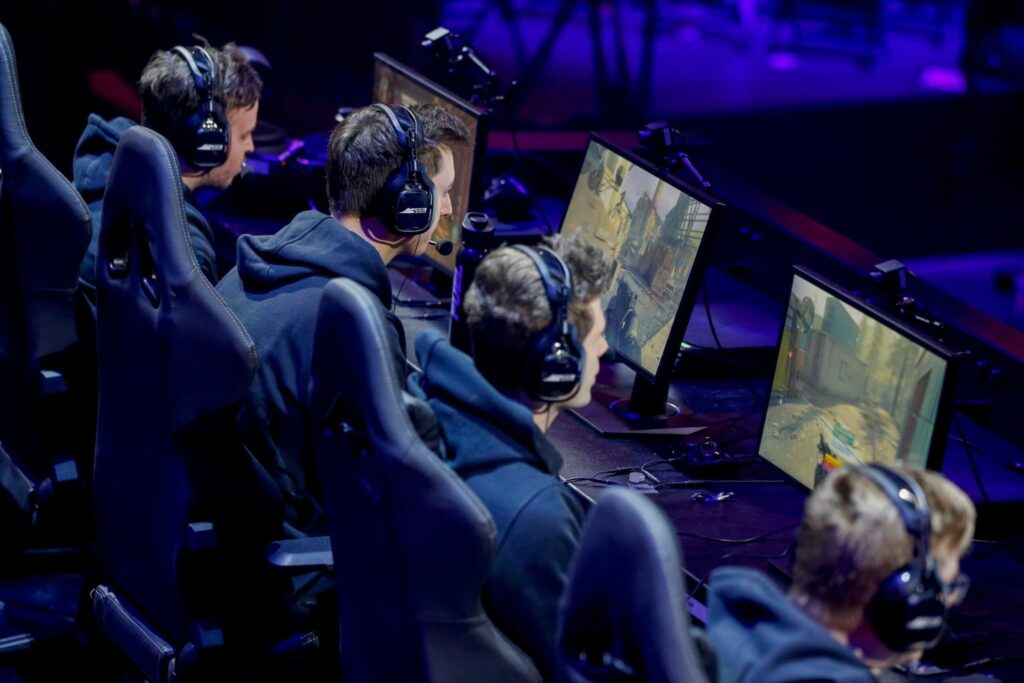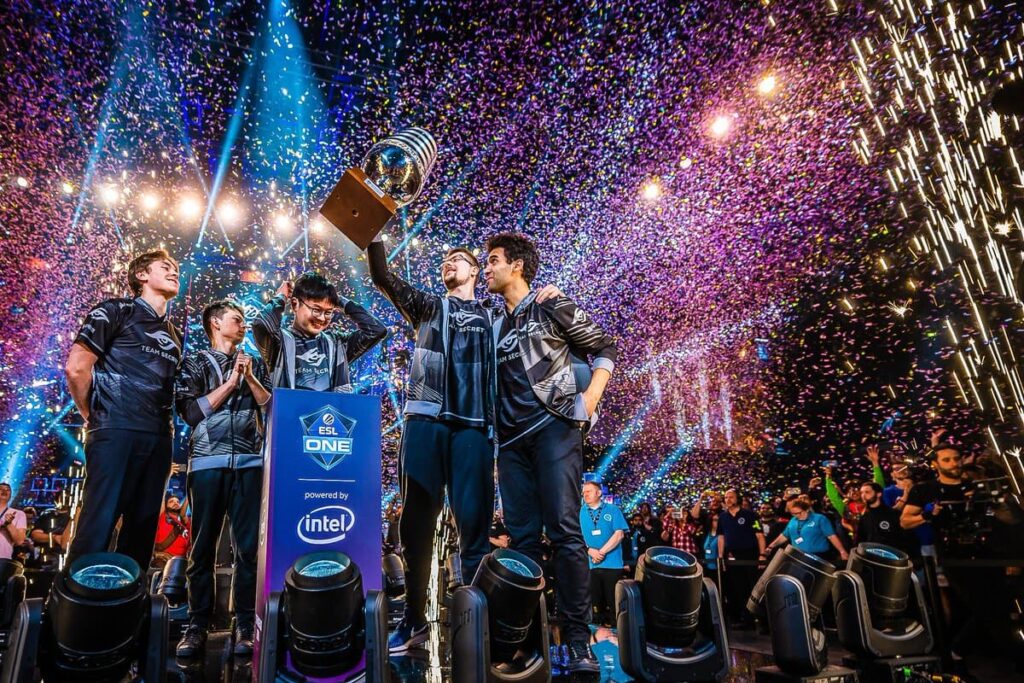
NFT Might Boost the Esports Sector?
Millions of spectators and players are participating in a wide range of competitive video games as the esports business continues to expand phenomenally. With the introduction of Non-Fungible Tokens (NFTs), esports events now have a new tool to enhance the game experience for both participants and spectators. NFTs enable the development of one-of-a-kind in-game objects that can be purchased and traded on blockchain platforms, including skins, weaponry, and even complete characters. These tokens provide the virtual goods with a new level of ownership and authenticity in addition to providing players and game creators with possible revenue sources. The esports business could transform thanks to NFTs, opening up new participation and revenue generation avenues.
Exploring the Synergy Between Esports and NFTs
Since both esports and NFTs occur online, they naturally complement one another. NFTs enable the production and possession of one-of-a-kind in-game best goods, which can improve user experience and open up new revenue opportunities for game producers. Additionally, NFTs offer a level of authenticity and transparency regarding the ownership of digital assets, which can aid in the fight against problems like fraud and piracy. NFTs have the potential to become more significant as the esports business develops, perhaps influencing the direction of the sector in the future.
NFTs Transforming Esports Interactions

· The esports sector may undergo a shift due to Non-Fungible Tokens (NFTs), which are tokens that cannot be fished out.
· On blockchain networks, NFTs make it possible to create distinct and verifiable digital goods that can be purchased, exchanged, and sold.
· When in-game products like skins or weapons are sold, they can be confirmed and certified by NFTs, allowing esports players to profit from their sales.
· A team’s own branded NFTs, such as limited edition jerseys or digital goods, can be produced and sold to supporters or given away as incentives for increased fan interaction.
· The ownership of digital assets can be more transparent and authentic thanks to NFTs, which may assist to lessen problems like fraud and piracy.
· Supporters can amass and trade NFTs that feature their preferred athletes, teams, and esports tournaments, which can promote a stronger bond and level of participation with the upcoming events in the esports community.
· The creation and sale of distinctive in-game products or even complete game assets as NFTs opens up a new source of income for game producers.
· With the capacity to develop brand-new forms of value and engagement for all industry stakeholders, NFTs in esports have nearly endless potential.
New Income Streams for Esports Organizations via Special Digital Items
· By selling exclusive digital goods on blockchain platforms, esports organizations have the chance to create new revenue streams.
· The creation of Non-Fungible Tokens (NFTs) allows for the sale of virtual goods such as in-game skins, collectibles, and other items to fans and collectors.
· Esports organizations can produce their own branded NFTs, like exclusive player cards or limited edition jerseys, which can be used to reward fans for participating in the sport.
· The authenticity and exclusivity of NFTs to digital goods might raise their perceived worth and draw in collectors.
· For esports organizations, the selling of NFTs may open up a new revenue stream that can be used to support projects like team operations and competitions.
· The potential for NFTs in esports matches is enormous, with the capacity to develop brand-new kinds of value and engagement for the esports community while presenting new huge revenue options for esports organizations.
NFTs Empowering Esports Players’ Ownership and Compensation

Enabling players to claim ownership over their in-game possessions and get paid for their work, non-fungible tokens, or NFTs, has caused a stir in the esports community. Players who possess virtual items like skins, weapons, and other collectibles can validate their ownership by utilizing NFTs. This not only provides individuals with a sense of control and ownership over their digital belongings but also makes it possible for them to profit from their successes.
Esports players can sell these NFTs to fans and collectors, opening them to a new source of income and offering a chance to increase their fan base. NFTs also enable gamers to design distinctive and tailored fan experiences, such as exclusive digital meet-and-greets or entry to special events. In addition, NFTs protect players from fraud and ensure fair remuneration by offering a safe and transparent mechanism to track virtual asset ownership and transfer.
In general, NFTs are demonstrated to be a game-changer for esports players, permitting them to take ownership of their digital assets and monetize their abilities and accomplishments in novel and exciting ways.
Conclusion
By providing players more control over their digital assets and introducing new revenue streams, NFTs have the potential to transform the esports business completely. NFTs can assist in preventing fraud and guarantee players a fair wage by verifying ownership and authenticity. Additionally, they give players a means of fostering deeper bonds with their followers and developing authentic experiences beyond conventional in-game awards. NFTs provide players with a fresh way to monetize their abilities and successes as the esports business expands while also giving fans a new way to participate with and support the individuals they are following. In general, NFTs have the potential to alter the esports sector and build a more egalitarian and exciting ecosystem for all parties involved, including players, spectators, and stakeholders.







